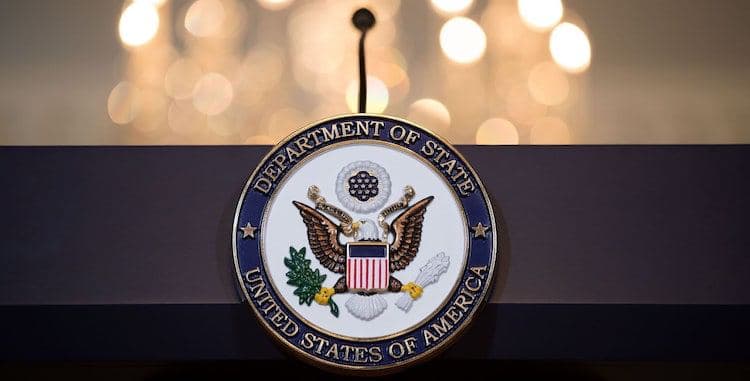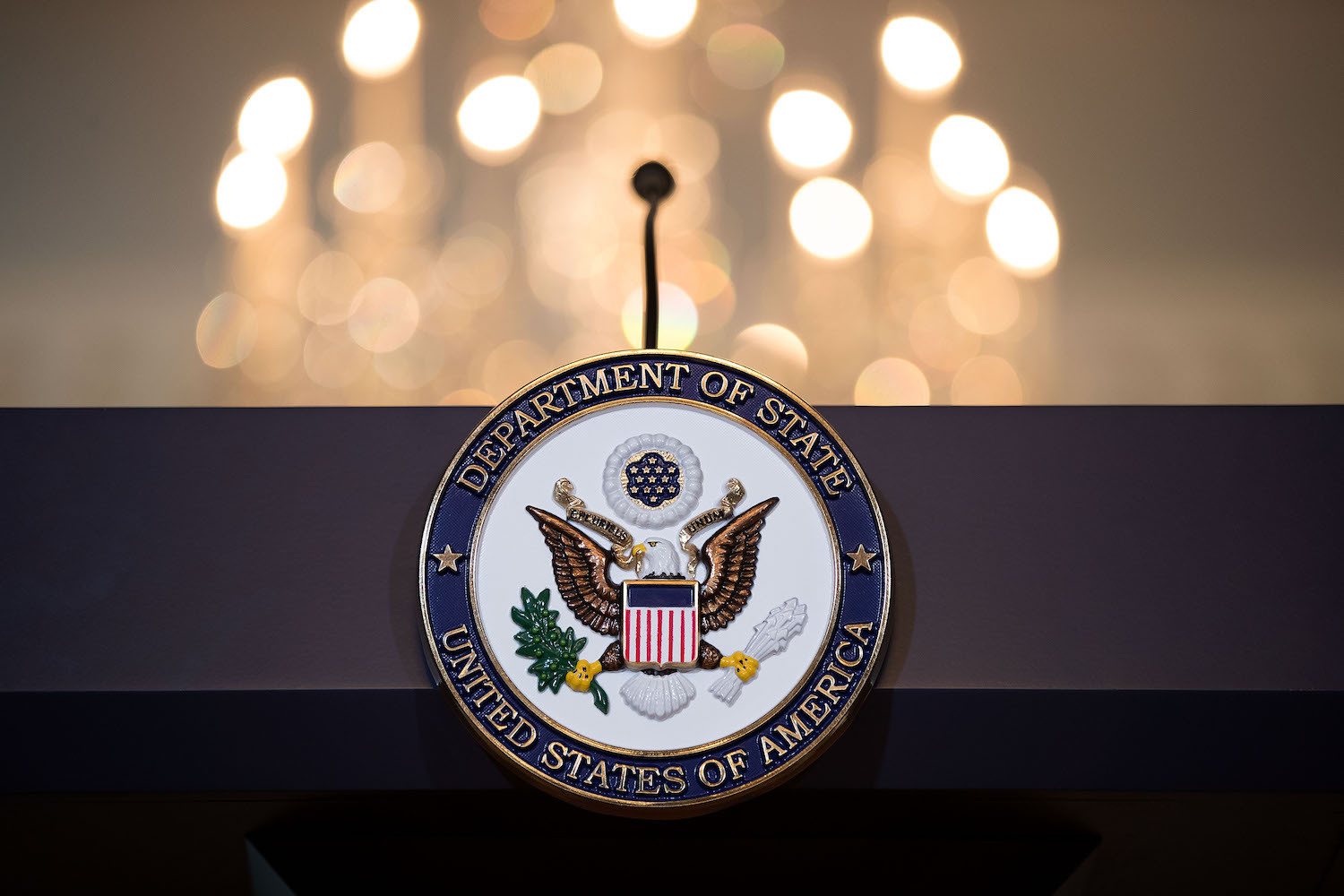US Georgia Human Rights report 2020: justice system and occupied regions in focus

The new report determined issues with the country's justice system, politically motivated prosecution and violations of human rights in occupied regions. Photo: US Department of State
The US Department of State has released its 45th report on the observance of human rights in countries around the world in 2020, including Georgia.
The report restated that the first round of the October 2020 parliamentary elections was both competitive and carried out with respect for all fundamental freedoms.
However, the report noted that allegations of voter pressure and blurring of the lines between the ruling party and the state ‘reduced public confidence in some aspects of the process’.
The report acknowledges that the Georgian government took some steps to investigate instances of human rights abuses in the country, however, lack of accountability for the inappropriate use of police force during June 2019 protests, as well as the abduction of Azerbaijani journalist Afgan Mukhtarli in 2017 remains an issue.
Independence of the judiciary
The report notes that the Georgian Constitution and law guarantee the independence of the judiciary system, the assessment determined the indicators of interference in judicial independence and impartiality and political pressure on judges.
The State Department report highlights the concerns of the Public Defender’s Office, the Coalition for an Independent and Transparent Judiciary, and the international community over the ‘influential group of non-reformist judges’ referred to in the Georgian media as ‘the clan’.
During almost 30 years since the declaration of Georgia’s independence, the country still has not managed to build an independent judiciary. Regrettably, we are still talking about political influences and corruption in the courts”, the report says, citing the Coalition for an Independent and Transparent Judiciary statement.
The group consists primarily of the members of the High Council and presiding judges, and the report states that most of the high-profile cases are linked back to them.
Other shortcomings of the country’s judiciary system indicated in the report include the High Council’s impact on the independence of individual judges, manipulation of the case distribution system, lack of transparency in the High Council’s activities, as well as shortcomings of the High Council’s appointments of judges and court chairpersons.
Politically motivates detentions, investigation and prosecution
The US Department of State report cites the September 2019 joint statement of 16 NGOs which raises concerns over the increasing instances of politically motivated detentions and prosecution.
Examples include charges brought against founders of the TBC Bank Mamuka Khazardze and Badri Japaridze, as well as the businessman Avandil Tsereteli, trials against the former director of the Rustavi TV Channel Nika Gvaramia, as well as the detention of the opposition figures Irakli Okruashvili, Giorgi Rurua and Gigi Ugulava.
The US Department of State report mentions that as per the 2019 assessment conducted by Transparency International Georgia, the charges of laundering 16.7 million USD brought against the co-founders of the TBC Bank and Avtandil Tsereteli ‘had no proof’.
The 2020 report notes that the families and ‘opposition party members and family members’ refer to Ugulava, Rurua, and Okruashvili as political prisoners. The report also acknowledges that after repeated calls, the opposition welcomed President Zourabichvili’s decision to pardon Ugulava and Okruashvili as part of the March 8 pre-election agreement.
However, calls for the release of the shareholder of the opposition-minded Mtavari Arkhi TV Girogi Rurua continue, reads the report. It goes on to cite the August 4 joint statement of 4 NGOs which stated that “prosecution on political grounds has recently become a weapon to influence political opponents or critical media outlets”.
In relation to the issue of arbitrary arrests in the country, the report addressed the high-profile case of alleged land-forfeit, the so-called “cartographer’s case”.
Two former members of the government Commission on Delimitation and Demarcation, Iveri Melashvili and Natalia Ilychova, were charged with attempting to violate the country’s territorial integrity during the commission’s work in 2005-07 on the state border with Azerbaijan.
The report notes that a number of Georgian NGOs and opposition parties referred to the case as being politically motivated and noted that “partisan statements by senior ruling party officials linking the case to the elections reinforced these concerns”.
Human Rights situation in the occupied territories
The newly released US Department of State report on Human Rights in Georgia in 2020 states that the Russian-occupied regions of Abkhazia and South Ossetia “remain outside of the control of the central government” and “the de facto authorities there are supported by Russian forces.
The newly released report also notes that there is little information available on the human rights and humanitarian situation in South Ossetia, and de facto authorities of the region denied access to the provision of humanitarian assistance to most of the international organizations.
The most significant human rights issues that the US 2020 Human Right report determined include:
- Unlawful killings and detentions
- Restrictions on movement, especially of ethnic Georgians
- Restrictions on voting and participation in the political processes
- Restrictions on the ability of ethnic Georgians to own property or register businesses
- ‘Borderization’ of the administrative boundary lines, separation of the residents from their communities and livelihoods
- Denying ethnic Georgians displaced during the 2008 war the right to return to their homes in South Ossetia
Freedom of peaceful assembly and association
The US Department of State report states that the Constitution of Georgia and law provide the right for freedom of peaceful assembly and association, however, the 2020 assessment showed that the government’s observation of those rights was uneven.
The report reads that the Public Defender’s Office and a number of local NGOs voiced a concern over the instances of police restricting or ineffectively managing the freedom of assembly:
For example, the public defender and NGOs criticized police use of water cannons to disperse protesters outside of the Central Election Commission on November 8, after protesters tried to breach a metal fence around the commission”, the report says.
The newly released report also notes that the public defender and the Georgian Democracy Initiative characterized this use of force as disproportionate.
Similarly, Georgia’s Young Lawyers Association referred to the incident as “illegitimate”, referring to film footage showing that in some cases water cannons were directly targeted against peaceful protesters, resulting in injuries.
Country Reports on Human Rights practices are released annually by the US Department of State. The reports assess the observance of internationally recognized individual, civil, political, and worker rights, as set forth in the Universal Declaration of Human Rights and other international agreements.
See the full report here.
 Tweet
Tweet  Share
Share






